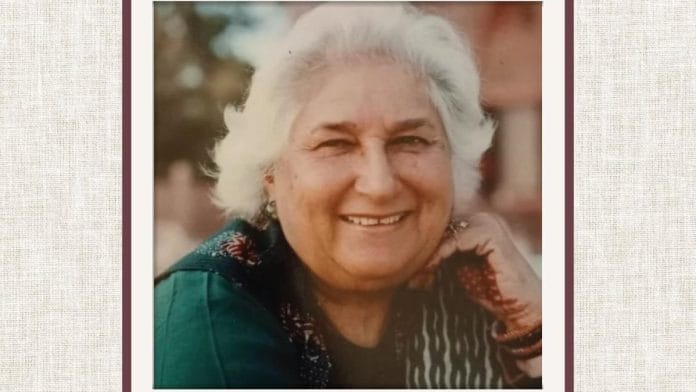Without Bim Bissell, New Delhi will never be the same again. I doubt that anyone has ever had a wider circle of friends and acquaintances. Or one as diverse as hers, ranging from artisans and weavers to handicraft and handloom experts; writers and poets to dancers and singers; actors and painters to sculptors and architects; media mavens to art critics; public intellectuals to academic scholars; successful businessmen and women to those struggling on the margins; serious thinkers to gossip-mongers; busybodies to politicians; from socialites to social climbers; even the unemployed and unemployable: everyone was grist to her hospitality mill.
Bissell had a deep and genuine interest in everyone who visited her, every place she visited. She had a profound empathy for those in difficulty and an all-encompassing sympathy for anyone who responded to the warmth with which she embraced one and all, young and old, the healthy and the unwell, the celebrities and the publicity-shy.
Her home was an aesthetic delight. It was imaginatively decorated with curios and artefacts, old miniatures and new paintings, carvings in wood, stone and metal, hangings and drapes from every corner of our vast land. It had invaluable coffee table books on every drawing-room table, her shelves bursting at the seams with a rich and varied collection of publications dating back to the dim past and contemporary to the last book review.
Also read: Bim Bissell’s lightness with worldly connections made her easy to warm to: Sunil Sethi
From Quetta to Fabindia
Her attire was never ostentatious or overdone but always tasteful, deceptively simple and strikingly innovative. So were the accessories she wore: sometimes chunky, sometimes delicate; oftentimes tribal, very indigenous and almost never imported. The cuisine she cooked, however, ranged across the world and India. She was always thinking up the most toothsome morsels, the most unusual fusions, the most imaginative and innovative offerings on her generous table startled or surprised but always pleased guests.
Born in Quetta to a veterinary doctor, who was the first husbandry commissioner of India, she studied for a while at Lahore’s Kinnaird College. The college reunions were nostalgic and kept her memories of Lahore alive. She was totally without prejudice of any kind, welcoming all and sundry—irrespective of nationality, race, caste, or creed—to her gorgeous home and ensuring that everyone had an unforgettable time. Her Christmas parties were the stuff of legend.
On coming to India after Partition, she found her lifelong metier at the Central Cottage Industries Emporium where she honed her expertise in handicrafts and handlooms. There she ran into a young American (John Bissell)—a true-blue Connecticut Yankee—whose passion was Indian textiles (and Bimla Nanda aka Bim). Their marriage was a model of harmony and mutual caring, undergirded by a profound and learned love for what Indian hands could conjure out of every native material.
Together, they set up Fabindia, which their son, William, has since made into an international brand. It was the outcome of John Bissell’s belief that anything and everything Indian was ‘fabulous’. Staying close to his family in New England, John and Bim made India their home and New Delhi their base, prouder of India’s heritage and more convinced of India’s future than many of us born and raised here. John, alas, died in March 1998, but Bim soldiered on, ably assisted by her son and daughter, Monsoon. While memories of John permeated their lives, they carried on his mission and the life they had jointly made for more than a quarter century after his passing.
What shot Bim into public life was her appointment as social secretary to US Ambassador John Kenneth Galbraith—more than whom no other diplomat has left such a deep impression on India’s political and social fabric. He won Prime Minister Jawaharlal Nehru’s confidence without ever transgressing on Nehru’s sensitivity over anything that infringed on India’s newly won sovereignty.
To Galbraith, Bim was much more than his office help; she enabled him to widen his contacts in the country of his accreditation into ever-widening concentric circles, with John quietly smiling and helping out in the background, unobtrusively. The mutual respect and affection that the Galbraiths had for the Bissells extended beyond their period in Roosevelt House to the many visits they made to India in the years that followed. Subsequent US Ambassadors have been well-advised to make the enchanting Bissell home their first port of call.
Bim has gone, and with her, an era has departed. But she has left so many friends behind that her name will reverberate whenever her friends gather together to reminisce about a past that will always stay with us. Goodbye, Bim: we love you, miss you, and bless you.
Mani Shankar Aiyar is a former career diplomat, ex-union minister and Congress leader. Views are personal.
(Edited by Ratan Priya)






